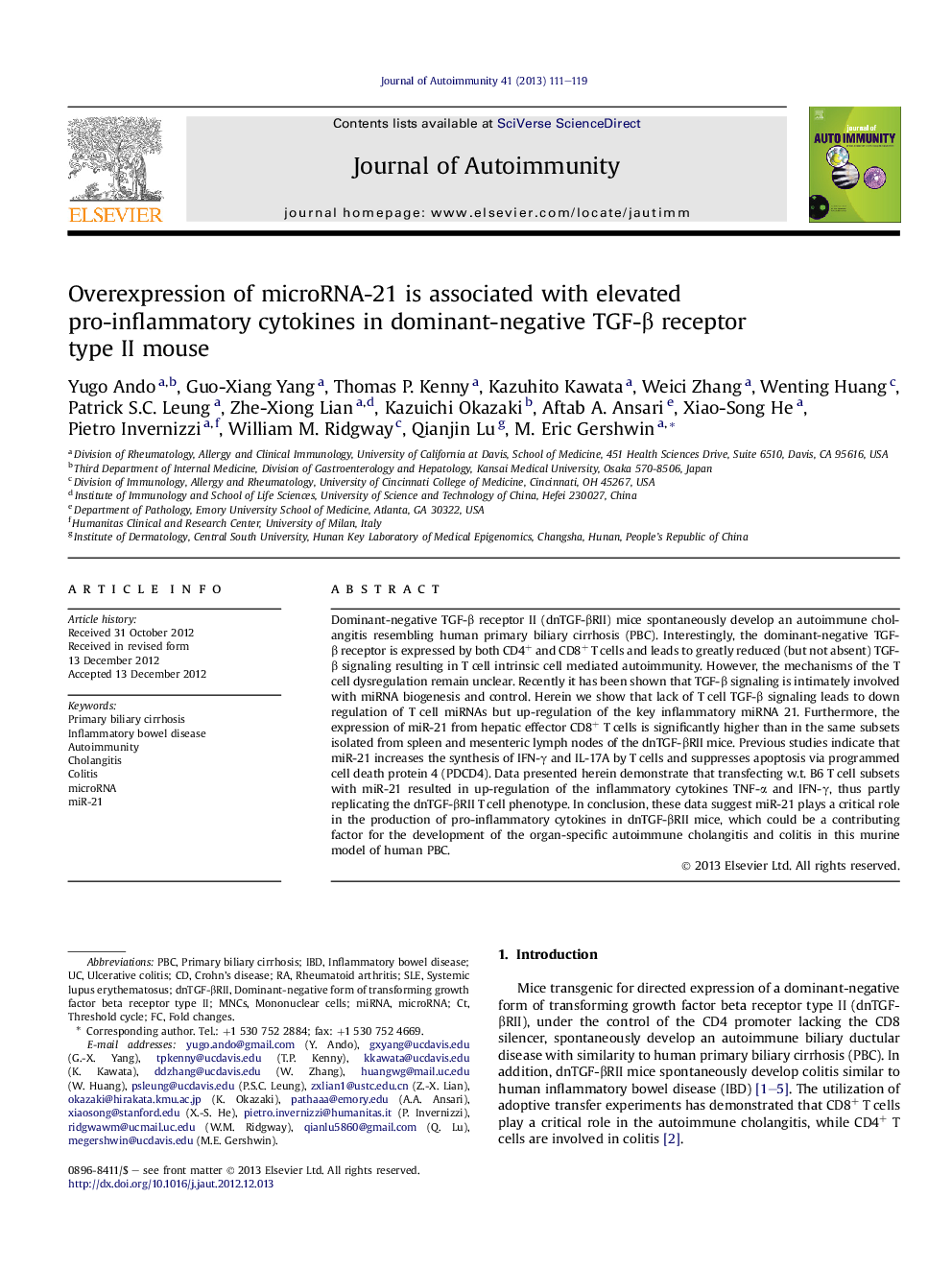| Article ID | Journal | Published Year | Pages | File Type |
|---|---|---|---|---|
| 3367905 | Journal of Autoimmunity | 2013 | 9 Pages |
Dominant-negative TGF-β receptor II (dnTGF-βRII) mice spontaneously develop an autoimmune cholangitis resembling human primary biliary cirrhosis (PBC). Interestingly, the dominant-negative TGF-β receptor is expressed by both CD4+ and CD8+ T cells and leads to greatly reduced (but not absent) TGF-β signaling resulting in T cell intrinsic cell mediated autoimmunity. However, the mechanisms of the T cell dysregulation remain unclear. Recently it has been shown that TGF-β signaling is intimately involved with miRNA biogenesis and control. Herein we show that lack of T cell TGF-β signaling leads to down regulation of T cell miRNAs but up-regulation of the key inflammatory miRNA 21. Furthermore, the expression of miR-21 from hepatic effector CD8+ T cells is significantly higher than in the same subsets isolated from spleen and mesenteric lymph nodes of the dnTGF-βRII mice. Previous studies indicate that miR-21 increases the synthesis of IFN-γ and IL-17A by T cells and suppresses apoptosis via programmed cell death protein 4 (PDCD4). Data presented herein demonstrate that transfecting w.t. B6 T cell subsets with miR-21 resulted in up-regulation of the inflammatory cytokines TNF-α and IFN-γ, thus partly replicating the dnTGF-βRII T cell phenotype. In conclusion, these data suggest miR-21 plays a critical role in the production of pro-inflammatory cytokines in dnTGF-βRII mice, which could be a contributing factor for the development of the organ-specific autoimmune cholangitis and colitis in this murine model of human PBC.
